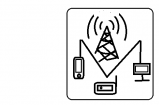Windows 10 How to Adjust Virtual Memory
Windows 10 How to Adjust Virtual Memory.
Virtual memory for your computer is hard drive space used by Windows when it fills up the physical RAM. Let’s say you have a computer that has 1 GB of RAM and you’re running several applications at once that might need a total of 1.5 GB of memory. Windows will fill up the 1 GB and then uses the free space on the hard drive to store the rest. This is called the paging file or virtual memory and Windows will increase and decrease the size of this file as needed. Writing to disk takes much longer than writing to physical RAM, so when Windows uses the paging file, computer performance degrades.
That’s why you’ll always hear people asking if you have enough RAM because the more RAM you have, the better your computers’ performance will be. However, we can tweak the virtual memory settings so that the paging file does not get fragmented and so that Windows does not have to grow or shrink the size of the paging file, both of which will cause the computer to slow down, especially on older machines.
By default, Windows uses the boot partition (the partition that contains your operating system files) and it is recommended to set the size of the paging file to 1.5 times the amount of RAM that you have.
This tutorial will apply for computers, laptops, desktops,and tablets running the Windows 10, Windows 8/8.1, Windows 7 operating systems.Works for all major computer manufactures (Dell, HP, Acer, Asus, Toshiba, Lenovo, Samsung).
Views : 396550
windows 10




